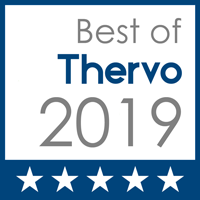Whereas Form I-601, Application for Waiver of Grounds of Inadmissibility, is for aliens inadmissible to the United States seeking immigrant visas, adjustment of status, certain nonimmigrant statuses, or certain other immigration benefits and a waiver of certain grounds of inadmissibility, Form I-601A, Application for Provisional Unlawful Presence Waiver, is for a different group of immigrants. Certain immigrant visa applicants who are relatives of United States citizens or lawful permanent residents (LPRs) can use Form I-601A to request a provisional waiver of the unlawful presence grounds of inadmissibility under the Immigration and Nationality Act (INA) § 212(a)(9)(B), before departing the United States to appear at a United States Embassy or Consulate for an immigrant visa interview.
While a Form I-601A can waive an unlawful presence, it does not waive other grounds of inadmissibility, so a person needs to retain legal counsel when seeking the benefits of a Form I-601A. When a person can get a visa approval overseas at an embassy or consulate interview, they can return to the United States and enjoy LPR status and a Green Card.
Form I-601A Requirements
People can file for Form I-601A waivers when they are any of the following:
- Relatives of United States citizens or LPRs
- Diversity Visa lottery winners
- Immigrant visa applicants
Applicants must also satisfy certain qualifications when filing for waivers of inadmissibility, including:
- Being at least 17 years of age
- Being physically present in the United States and able to provide biometrics
- Being willing to leave the United States to legally obtain an immigrant visa
- Applicant’s family, most notably a spouse or parent who is a United States citizen or LPR, would suffer extreme hardship if the applicant is not united with them in the United States
- Applicant is inadmissible because of unlawful presence between 180 days to 365 days during a single stay or because of unlawful presence for one year or more in a single stay
- Applicant has case with the United States Department of State for approved immigrant visa petition or Diversity Visa Program
People will not qualify for an I-601A waiver if they:
- Are younger than 17 years of age
- Are dealing with grounds of inadmissibility for any reason besides unlawful presence
- Already have applications to adjust statuses
- Are currently going through removal proceedings
- Fail to include details of hardships a spouse or parent would face upon removal
- Fail to have pending cases with the United States Department of State for approved visa petitions or selections for Diversity Visa
- Have a prior order of removal before or during a pending I-601A
Required initial evidence will also include:
- An immigrant visa petition approval notice or Department of State (DOS) Electronic Diversity Visa Entrant Status Check printout (when applicable)
- A copy of a person’s Department of Justice EOIR Administrative Closure Order (when applicable)
- A copy of a person’s Form I-797, Notice of Action, showing USCIS approved the person’s Form I-212, Application for Permission to Reapply for Admission into the United States After Deportation or Removal (when applicable)
- A person’s DOS Immigrant Visa Processing Fee Receipt (for immediate relatives, family-sponsored, and employment-based immigrant visa applicants)
- Evidence of a person’s relationship to their qualifying relative (when applicable)
- Evidence of United States citizenship or LPR status of a person’s qualifying relative (when applicable)
- Evidence of a person’s admission or parole
- Evidence of extreme hardship
- Evidence a person’s case warrants a favorable exercise of discretion
Extreme Hardship Relating to Form I-601A
While an alien can qualify for a I-601A provisional waiver, they also need to prove extreme hardship to a United States citizen relative spouse or parent or LPR spouse or parent, meaning that if the citizen or LPR spouse or parent has to relocate or the alien relocates without the citizen or LPR, the citizen or LPR will suffer extreme hardship. Factors that may be considered in determining extreme hardship can include health or medical considerations, financial and economic reasons, education, personal considerations, family ties, and a country’s condition.
Hardship to a foreign national is only considered to the extent that it is also a source of hardship to a United States citizen or LPR spouse or parent. USCIS officers generally consider such factors as:
- Financial harm — Applicants may claim that their application affects future employability, possible home or business loss, significant declines in standard of living, loss of the ability to recoup short-term losses, and costs of extraordinary needs.
- Health of qualifying relatives — United States citizens or LPR spouses or parents could require ongoing or specialized treatment for physical or mental conditions, there might be limited availability and diminished quality of treatment in a home country, and there can be additional issues depending on whether a condition is chronic, acute, long, or short-term.
- Personal considerations — Applicants could lose close relatives within the United States or their home country, face separation from family, call attention to the ages of all of their involved parties, and also note the length of their residence and community ties within the United States.
- Special considerations — Certain applicants could be dealing with religious, language, cultural, or ethnic obstacles, have valid fears about physical harm, persecution, or injury in their home country, and also lack access to various social institutions or structures.
- Educational losses — An applicant might be dealing with a lack of ability to pursue higher education, be dealing with a major disruption to their current program, and
lose access to special requirements such as internships or training programs in specific fields.
Form I-601A Process
A person needs to send their unlawful presence waiver form to an appropriate facility, and they should consult a Los Angeles I 601A provisional waivers attorney to ensure they are sending their application to the right address. There will be a $630 filing fee for Form I-601A and an $85 biometrics fee.
Extreme hardship waiver approval rates frequently depend on specific circumstances of an applicant’s inadmissibility. If inadmissibility is based only on overstaying a visa, approval chances are much higher, but other factors such as a criminal record, immigration fraud, or other visa violations can hurt the chances of approval.
USCIS currently estimates that it will take 27 months for the Nebraska Service Center to process a Form I-601A and 35.5 months for the Potomac Service Center to do the same. It will take 12 months for the Nebraska Service Center to process Form I-601.
After a 601A waiver earns approval, an applicant can apply for a United States permanent resident card or green card. You may have to do this through consular processing, which means that you will have to return to your home country and apply for a green card from the home country’s United States Embassy or consulate.
A person submits their approved Form I-601A waiver with their green card application. By showing an extreme hardship waiver approval, the person will be showing that they have been waived from any 3- or 10-year ban.
Should your 601A provisional waiver result in a denial, you will receive a denial notice at the address from your Form I-601 application. You can appeal a decision within 30 days by filing Form I-290B, Notice of Appeal o,r Motion.
Call Us Today to Speak with a Los Angeles I 601A Provisional Waivers Attorney
If you know you will need to file a Form 601A but have concerns about earning approval, do not wait to get yourself legal representation. People who work with lawyers often have much greater chances of success, and the Law Office of Todd Becraft will know how to walk you through the entire Form 601A process.
Our firm has handled scores of these kinds of cases, so we know how to deal with every issue that might arise. Call (213) 388-1821 or contact us online to set up a consultation with our Los Angeles I 601A provisional waiver attorney.




